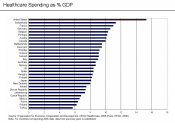According to the Word Health Organization a definition of health is that it is a state of complete physical, mental and social well-being.So health is as much a social as a biological issue.On the other hand, Kleinman(1988) suggests that illness 'refers to how sick person and members of the family or wider social network perceive, live with and respond to symptoms and disability.'
But it is obvious that health in low-income countries differs from the health in high-income countries. According to statistics in low-income countries 1 billion people around the world suffer from serious illnesses due to proverty. The reason that people suffer and die from illnesses(and especially children who's organism is not very strong) are the poor sanitation and malnutrition. This is because people eat one kind of food and in little quantities and also the sanitary drinking water which is as important as having a balanced diet.
A century ago, in Europe there were diseases such as influenza, pneumonia and tuberculosis which remained popular reasons of death in low-income countries. All these should not be happening because we contemplate the 21st century where people have develop the technology and all countries should have a satisfactory health system which must make people capable of working productively and participating actively in the social life of the community in which they live. The aim of World Health Organisation is to ensure in all nations a safe access to sanitary facilities, water, immunisation against major infection and offer local health care.
In contrast with low-income countries, in high-income countries chronic illnesses such as heart diseases and cancer are limited only in elderly people.That is because these countries are highly developed in technology and they can offer a satisfactory health system to its own citizens.
An example of low-income countries...


